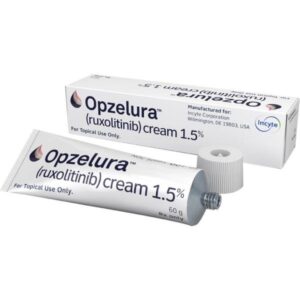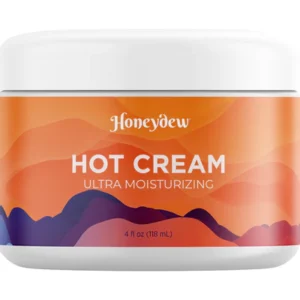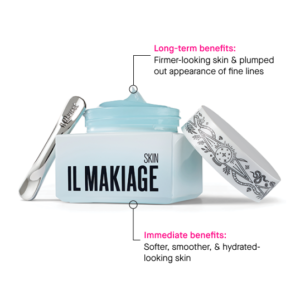Skin peeling may be indicative of many different conditions, from mild sunburns to more serious issues like psoriasis or toxic shock syndrome. While peeling generally doesn’t warrant concern, in certain instances it should see by a healthcare provider immediately.
Your doctor can use the location of your peeling skin to pinpoint its source and prescribe appropriate treatments.
Skin Peeling Causes
Skin may start peeling for various reasons, and usually isn’t an indicator of anything serious. It could be related to chronic skin conditions or medications taken; sometimes mild over-the-counter products can even address it; however, if severe peeling lasts more than several days or you experience other symptoms like chills or fever it should addressed by consulting with a dermatologist immediately.
One of the primary causes of skin peeling is overexpose to sunlight. Sun damaged, red and irritated skin will flake off to reveal newer layers below. You can avoid this situation by always wearing sunscreen when outdoors and covering exposed areas with clothing when spending time outside.
Other causes of skin peeling may include chronic skin conditions such as psoriasis and eczema, which cause dry, itchy scaly skin which peels easily. Also, medications like blood pressure pills, acne medicines and penicillin can lead to your skin flaking off in patches and peeling easily; radiation treatments for cancer patients may cause similar results.
Allergies can also contribute to peeling skin. A severe reaction to perfumes, for instance, could make your skin flake and peel, potentially impacting not only your face but arms, hands and other parts of your body as well.
Maintain healthy skin by washing it with lukewarm water, using fragrance-free soaps and using moisturizing creams or ointments with high oil content, such as those that include cotton gloves for chores that involve getting hands wet as well as vinyl gloves when working around chemicals or potentially hazardous materials. Furthermore, try eating a well-balanced diet and drinking plenty of fluids when suffering from dry peeling skin conditions.
Home Remedies
Home remedies may provide relief for peeling skin or address its underlying health issue, including using gentle cleansers, moisturizing the area frequently and avoiding contact with chemicals or substances which might irritate it further. Drinking more water and using skin care products without alcohol or fragrances can also keep skin hydrated, potentially slowing or stopping peeling altogether.
One common cause of peeling skin is sunburn. After exposure, it is crucial to immediately use lotion or ointment on affected areas to soothe and hydrate them while protecting exposed skin from additional UV rays. Cover up when going outside to reduce further UV exposure to help heal it faster.
Kawasaki disease, an extremely rare condition, may also lead to peeling skin. Most frequently it affects children under age 5, but adults may be susceptible too. Symptoms may include dry, red and flaky hands and feet as well as fever lasting several days, swollen lymph nodes and blistered lymph nodes as well as a rash with blisters.
If you are struggling to determine how best to treat peeling skin, consulting with a doctor could be invaluable. They will be able to examine it closely and help pinpoint its cause before providing solutions that restore its health.
If your peeling is due to sunburn, it is best to leave the damaged skin alone and let it heal on its own. Exfoliation may irritate and worsen the condition; for optimal results use a non-comedogenic moisturizer free from alcohol and fragrances in place. Gloves should also worn when doing household tasks that might get hands wet; drinking plenty of water (8-10 glasses daily) will help your skin from drying out; especially beneficial in colder months when temperatures can decrease dramatically – soft fabrics like Turkish towels or Velour hand towels will help shield them from irritation too!
See a Doctor
Skin peeling can be an early warning of infection, so it’s wise to visit a physician immediately if this condition arises. A dermatologist will examine your skin in order to identify its source and provide treatment accordingly.
If your skin peeling is due to dryness, consulting with a dermatologist could suggest adding moisture-rich foods and beverages into your diet as a means to relieve it and improve symptoms. Avoid foods high in fat and sugar such as butter, cheese, nuts and fatty cuts of meat as these could contribute to dryness; additionally drinking plenty of water as well as using moisturizer may help. In some cases, adding a humidifier could provide additional humidity into the air that may aid with dryness issues.
Fungal infections could also be responsible for skin peeling. When this happens, seeking treatment quickly is key – as fungal infections spread rapidly. Treatment will typically involve soaks and ointments along with antifungal medication prescribed by your physician to ensure optimal results.
Peeling may also cause by Atopic Dermatitis, an inflammatory disorder characterized by itching and red, flaking skin. It’s most frequently found on elbows, knees, wrists, back of hands, feet and the genital area; should this condition arise, it could require anti-itch creams and ointments from your dermatologist in order to alleviate itching and peeling symptoms.
Certain medications, including blood pressure medications, oral contraceptives and antibiotics such as penicillin can also contribute to peeling skin. If this is the cause of your peeling skin condition, discontinue the medication immediately and visit a healthcare professional as soon as possible.
Chronic skin conditions like eczema, contact dermatitis, seborrheic dermatitis, psoriasis and rosacea can all cause thickening and flaking of the skin, making it thicken and peel. A dermatologist may suggest steroid ointments or other treatments in order to manage symptoms effectively.
Finding a dermatologist experienced in treating people of color is also essential, since chemical peels tend to work better on darker skin tones than lighter skin tones. A poor chemical peel could result in post-inflammatory hyperpigmentation.
Skin Peeling Treatment
Skin peeling can cause by many medical conditions and cosmetic treatments, from sunburn to infections or inflammations. To effectively address any condition that leads to peeling skin, such as sunburns, it’s best to address its source; your dermatologist may even prescribe moisturizer or sunscreen to prevent future sunburns.
If the skin is peeling due to infection, your doctor will prescribe antibiotics or other medication to address the infection. They may need to remove damaged areas as part of treatment options; otherwise, they will offer other solutions for improving its health.
Fungal infections such as athlete’s foot, jock itch and ringworm can all lead to peeling skin infections such as athlete’s foot. Scarlet fever and staphylococcal scalded skin syndrome (SSS) also may lead to peeling skin issues; while various autoimmune disorders, such as pemphigus (when your immune system attacks the outer layer of skin) or Kawasaki disease – rare illnesses affecting mostly infants – also often results in peeling skin conditions.
Other conditions that may cause peeling skin include psoriasis, an inflammatory disease which accelerates cell division. Psoriasis symptoms often include itching, redness and dryness while itching is also often present with eczema – an itchy condition marked by itchy, flaky skin that causes flare ups of redness or irritation.
Unless the root cause of peeling skin addressed immediately, cracks and painful sores could develop over time, infections could spread, and permanent damage could result. For a consultation appointment immediately visit U.S. Dermatology Partners online or use Healthline Find Care tool; in some instances, your physician may need results of blood tests or other diagnostic tools in order to accurately pinpoint its source.
Recommended readings:
- 7 Causes of White Nail Spots
- How to Stop and Control Sweating
- Why Do I Have an Outie Belly Button?
- Medical Spa Treatments for Post-Surgery Healing
- Ingrown Hair Vs Herpes







